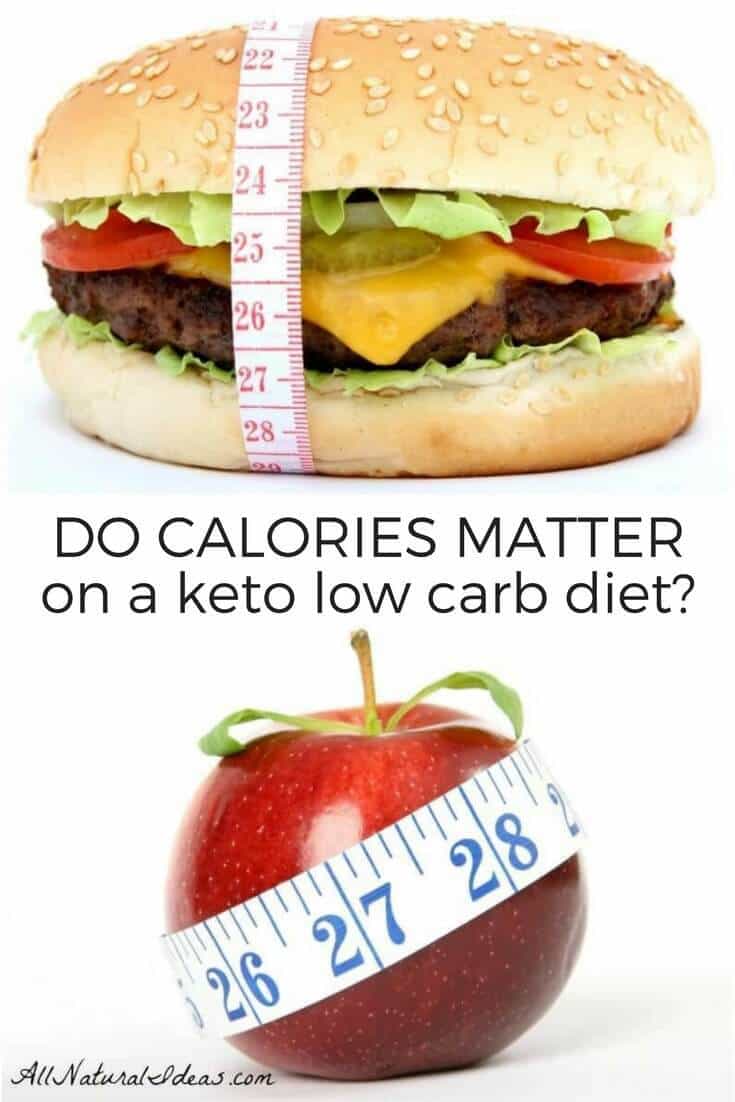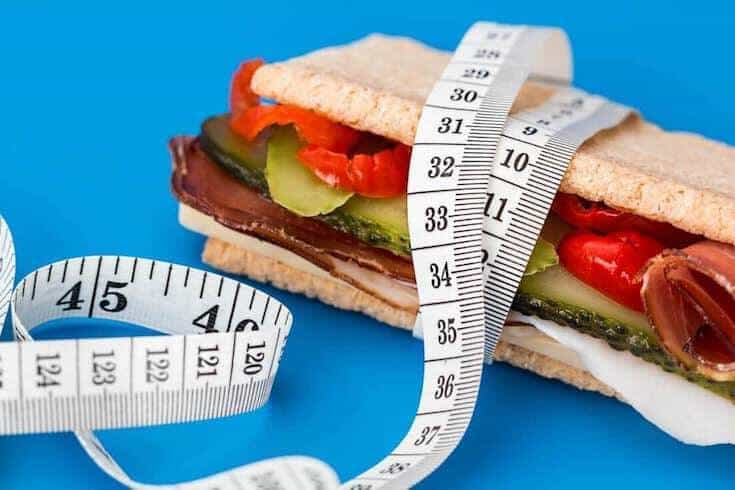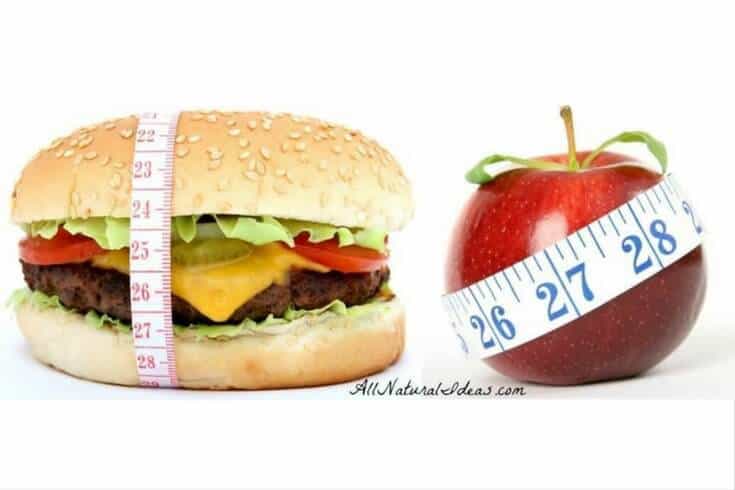Do calories matter on keto low carb diets? And, is it important to limit calories for weight loss? Let’s examine the impact of calories when losing weight.

Nearly every aspiring fitness trainer and health coach learn early in their education about the “Law of Thermodynamics.”
The Law of Thermodynamics, at least when applied to nutrition can be summarized like this:
Change in fat mass = Energy consumed – Energy expended
People who are trained to counsel people, either through exercise coaching or nutrition, interpret this information as: What you weigh equals how much you eat and how many calories you burn.
Or, to put it yet another way, bodyweight equals calories in versus calories out. So, this theory leads one to believe how many calories are needed to lose weight depends on activity level.
But is this simple equation accurate? Does it really show the whole picture? Do calories matter on keto low carb diets when you are trying to lose weight?
The answer: Yes! But also, No!
In a sense, yes calories do matter when it comes to weight loss. But unequivocally more important is what you eat and how the nutrients that are derived from the foods you eat affect fat metabolism.
For example, you can certainly make up a batch of easy keto cupcakes. But you wouldn’t want to eat the whole batch. That’s way too many calories is certain to hinder any weight loss efforts.
In essence, how your hormones are functioning, specifically when it comes to regulating fat metabolism is vitally more important than just a total caloric daily value.
Let’s use an example of how calories aren’t the most important thing when it comes to weight loss….
If you were to eat only 1,500 calories of white rice versus 2,000 calories of a high-fat/low-carb diet, would you weigh more eating the 1,500 calorie white rice diet? Or would you weigh more eating the 2,000 calorie low-carb diet?
Before answering the question, let’s actually go back to the original question: Do calories matter on keto low carb diets?
It’s a question that no doubt thousands of people are wondering, just take a look at this Reddit post. In fact, doing a Google search yields hundreds of thousands of results.
And, if the question is phrased differently, it’s likely the total is well over a million. Obviously, lots of people are still confused about the connection between total caloric consumption and body weight.

The most important question to ask when it comes to weight loss
But the question everybody should be asking is: before I eat this meal, is everything I’m about to eat going to be stored as body fat? Or is everything I’m about to eat going to help burn my fat reserves?
So, when looking at the question do calories matter on ket, in a sense, yes the total amount of calories matters. If you ate 10,000 calories in one sitting of avocados, which is probably impossible. But, let’s just use the argument hypothetically, the law of thermodynamics (calories in versus calories out/burned up) may indeed apply.
However, a calorie (technically, kilocalorie is the correct term to measure energy density in a specific food, but we’ll just use calorie here) in one food isn’t the same as a calorie in another food. At least not when it comes to getting leaner and having your pants feel loose on your waist.
If you eat the same amount of calories from an avocado (just don’t eat 10,000 calories worth!) and the same amount of calories from crackers, guess which food is going to result in a release of insulin? Guess which food is going to make your cells more resistant to insulin? The answer to both, of course, would be the ‘crackers.’
Eat foods that do not encourage fat storage … points don’t work
Only dietary natural fats that have not been oxidized or hydrogenated, and to a lesser extent protein, do not elicit an insulin response. When insulin is released, your body is not using its stored body fat to use energy. It’s putting more sugar in its savings account (your abdominal area) for stored energy.
Yes, counting calories can help you lose weight. It’s why programs like Weight Watchers have been so successful. That’s why a lot of people think the answer to “Do calories matter on keto low carb” is yes. But, popular point-counting systems by and large do not place an emphasis on educating consumers on the difference between eating foods that encourage fat storage versus foods that utilize stored body fat.
Just how ridiculous the point system is can be illustrated by entering the nutrition info for coconut oil into Weight Watcher’s new point system, which was revised in 2015 to assess a particular food’s total points based on saturated fat, protein, sugar and calories.
Let’s say you want to make your own version of Bulletproof Coffee at home and want to use 2 tbsp of coconut oil. That would be a whopping 14 points. Because the points value is ballooned by the saturated fat content (coconut oil has about 12 grams per tbsp), an uneducated consumer would assume that saturated fat encourages fat storage, when it reality, it encourages fat utilization (burning).
The perpetuating misinformation about saturated fat is another larger topic. We’ve addressed it in this interview with Dr. Jonny Bowden. But the example shows how a calorie in one food isn’t the same as a calorie in another food when it comes to fat burning. And that’s the real takeaway.
Conclusion: Do Calories Matter on Keto Low Carb Diets to Lose Weight?
Don’t think of it as how many calories are needed to lose weight. This will only burden yourself with calorie counting. Instead, place more emphasis on determining if every food, condiment and drink you consume will encourage the nutrients to store more body fat or burn it. And, the best way to do this is by following a low carb high fat diet.






